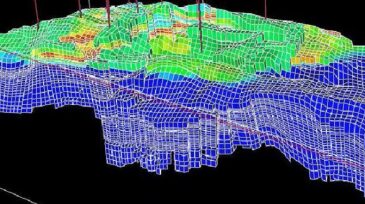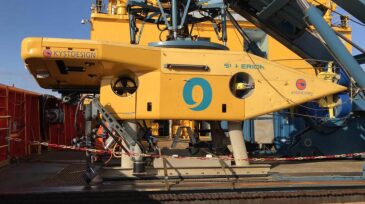DSDE: Features
-
Data undoubtedly has value, agreed participants at a recent symposium held by the Professional Petroleum Data Management Association in Denver. Quantifying that value—and communicating that value to decision-makers in a company—however, is tricky if not impossible.
-
The digital transformation is a risky proposition for oil and gas companies adapting to a rapidly changing business environment, but a failure to adapt could spell trouble for the industry.
-
The November issues of SPE’s peer-reviewed journals SPE Reservoir Evaluation & Engineering and SPE Production & Operations include papers addressing data analytics and machine learning.
-
Just because they both deal with data does not mean they are the same.
-
Sensors, robots, and artificial intelligence have made their way into a number of areas within the industry, including pipeline inspections. Shell has begun to examine the innovative technologies that could shift the inspection paradigm.
-
Most companies have known for a while that they benefit when the parties that manage their networks cooperate. Beyond benefiting the business, however, this cooperation of open communication between the different sectors can help the people tasked to manage the security of those networks.
-
A slew of data science jargon is flooding the industry, and one impediment to the digital transformation is confusion over associated terminology. The Society of Petroleum Engineers is beginning to make a concerted effort to help demystify the buzzwords, and this article kick starts that effort.
-
In 2018, Murphy Oil launched an initiative to open-source all internal live streaming data to its engineers. The process led it to implement a global data historian and a corresponding visualization tool. The insights provided are shaping the future of operations at the company.
-
Unmanned aerial vehicles are creeping up on ubiquity in the oil and gas industry, but their potential still firmly outweighs the actuality. A panel at the 2019 SPE Annual Technical Conference and Exhibition took a close look at the benefits of drones and at the tethers still holding back their use.
-
Digital transformation supported by data analytics and artificial intelligence can be the differentiator that allows the upstream industry to persist in the next 100 years, providing a unique foundation for innovation to enhance general public awareness and life quality.
Trending Now on DSDE
Stay Connected
Don't miss out on the latest technology delivered to your email every 2 weeks. Sign up for the DSDE newsletter.














